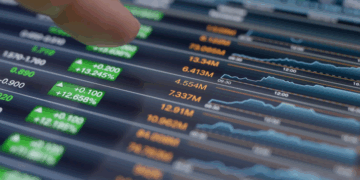The move to gold is to diversify holdings and reduce reliance on the US dollar.
African countries are racing to increase their gold holdings. The reason? To protect themselves against geopolitical tensions that have devalued their currencies and fueled inflation.
Zimbabwe, Nigeria, and South Sudan are among the nations that have either strengthened their holdings or are thinking about doing so. The action is in line with that of central banks that have amassed gold reserves in order to diversify their holdings and lessen their reliance on the US dollar, including those in China and India. A poll by the World Gold Council indicates that about 20 central banks plan to increase their holdings in the upcoming year.
Charlie Robertson, head of macro strategy at FIM Partners, said that made some sense as a diversification approach. The price of gold has increased so high that it doesn’t matter that it doesn’t pay interest like reserves stored in the US Treasury. The trade has been profitable. This year, the price of bullion has increased by 16%, reaching $2,396.59 per ounce on Monday.
The supply-chain disruptions brought on by the coronavirus outbreak, the conflict in Ukraine, and a sharp rise in interest rates worldwide prompted a selloff in their currencies and fueled inflation primarily impacted African countries. The ongoing violence in Gaza, trade disputes, and apprehensions about the potential consequences of Donald Trump’s second term as US president have reignited geopolitical tensions.
James Alic Garang, the governor of South Sudan’s central bank, reaffirmed over the weekend that the country intends to increase the amount of reserves it has by adding additional resources, such as gold. He stated, “We are in the stage of preparing policy documents and studying examples of other countries and lessons drawn.”
In order to alleviate “the declining foreign-currency reserves and address the associated risks in the international financial markets,” the Bank of Uganda intends to directly purchase bullion from artisanal miners. The World Bank stopped providing fresh loans to the East African country in August because of anti-LGBTQ legislation, which caused capital flight and a decline in the country’s foreign exchange reserves.
Legislators in Nigeria are also suggesting that the central bank employ gold to stabilize and sustain the naira and reduce the risk of inflation. The most populous country in Africa’s currency is experiencing the poorest performance against the US dollar globally this year, trailing only the Lebanese pound. This is partially because the devaluations intended to establish a freely floating naira.
The Central Bank of Madagascar moved toward buying gold domestically last year as export revenue from vanilla decreased. Tanzania said in June that it will purchase six tons of the metal for $400 million.
Zimbabwe, which experimented with gold coins for the first time in 2022, introduced a bullion-backed currency in early April in an effort to reduce exchange-rate volatility and an inflationary spiral.
ZiG, or Zimbabwe Gold, is supported by 2.5 tons of gold. In 15 years, this is the country’s sixth attempt to introduce a working local currency, taking the place of the Zimbabwean dollar, which lost 80% of its value in relation to the US dollar in 2024.
Governor John Mushayavanhu has ceased producing gold coins and is instead moving the metal to the country’s vaults in order to increase reserves to over three tons this year. The World Gold Council has worked with central banks over the last two years to design domestic buy programs from small-scale miners. The industry group’s worldwide head of central banks, Shaokai Fan, stated in an email answer to queries.
“Central banks can add gold to their official reserves using their local currency, allowing them to grow reserve assets without having to sacrifice other hard-currency reserves,” he said.
However, Hasnain Malik, an emerging market stock strategist at Tellimer in Dubai, argued that the gold rush does not portend thoughts that bullion could replace dollars as a “liquid substitute.” Nonetheless, it may make sense for nations holding the belief that either the value of gold would rise, the value of the US currency would fall, or sanctions may prevent them from obtaining US dollars, to increase the amount of gold in their reserves.

















